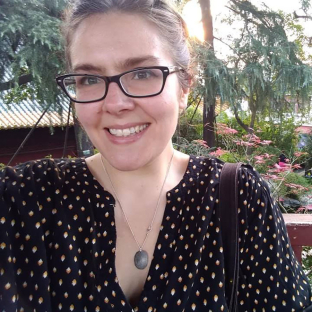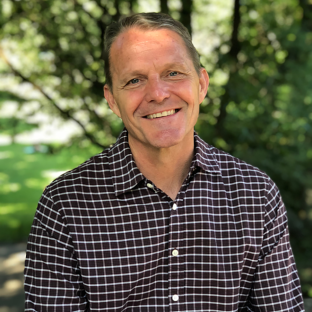Nazism, Neo-Nazism and Music

|
Panel
Admission: Free |
All political movements use music, and National Socialism is no exception. Both Hitler’s Nazis and postwar neo-Nazis have used different kinds of music in various ways. This panel will explore how German Nazis used music to help facilitate mass murder during the Holocaust, as well as how neo-Nazism became entangled with various music-based subcultural scenes and their connections with political organizations. From the NSDAP to the American Nazi Party’s record label, to the Nazi skinhead movement, to NSBM (National Socialist Black Metal) and even fascist reggae, this panel will document and reflect on how, why, and in what ways National Socialism has come to be tied to various musical forms.
This panel will be moderated by researcher, writer, and activist Spencer Sunshine and feature Luca Signorelli (author of L’Estetica Del Metallaro), Shannon Foley Martinez (consultant for American University’s Polarization and Extremism Research and Innovation Lab), Kirsten Dyck (author of Reichsrock: The International Web of White-Power and Neo-Nazi Hate Music), and Edward B. Westermann (author of Drunk on Genocide: Alcohol and Mass Murder in Nazi Germany).
About the Participants
Spencer Sunshine, PhD, has been researching contemporary Far Right and fascist movements for 15 years, with special attention paid to antisemitism. Since 2016, his blow-by-blow coverage of the U.S. Far Right’s meteoric rise to power has appeared in publications like Truthout and Colorlines. The subject of several conspiracy theories himself, Sunshine is currently finishing a report on the origins of the neo-Nazi murder manual Siege, in addition to working on two books about Nazism in the United States.
From 1988 to 2000, Luca Signorelli was the co-editor of Metal Hammer Italy—the most popular Italian music magazine in the 1990s. He is the author of two best-selling volumes on heavy metal and extreme rock: Metallus, a comprehensive encyclopaedia covering the most important metal bands, and L’Estetica Del Metallaro (“The Metalhead Aesthetic”), a reflection on the relationship between heavy metal culture and politics, art, philosophy, and science. Signorelli, who has also written about the history of mountaineering and the history of science, is married with two children and lives in Italy.

Since leaving the white supremacist movement over 25 years ago, former skinhead Shannon Foley Martinez has worked for school systems, non-profits, and community organizations to build preventative models of counter-extremism. Currently a consultant with American University’s Polarization and Extremism Research and Innovation Lab (PERIL), her approach focuses on family values, individual empathy, and intersectional consciousness inclusive of race, class, gender, and sexuality.

Kirsten Dyck is the author of Reichsrock: The International Web of White-Power and Neo-Nazi Hate Music (Rutgers University Press, 2017). Currently teaching English at Nanjing Xiaozhuang University in Nanjing, China, she was a Peace Corps Volunteer at Poltava National V.G. Korolenko Pedagogical University in Poltava, Ukraine, and taught at James Madison University in Harrisonburg, Virginia. Dyck earned her PhD in American Studies from Washington State University in 2012, and has been a fellow at the U.S. Holocaust Memorial Museum, the Auschwitz Jewish Center, and the German-American Fulbright Commission.

Edward B. Westermann is a Regents Professor of History at Texas A&M University-San Antonio. He is the author of Hitler’s Police Battalions: Enforcing Racial War in the East (2005) and Hitler’s Ostkrieg and the Indian Wars: Comparing Genocide and Conquest (2016). Westermann holds a PhD from the University of North Carolina, Chapel Hill and was a Fulbright Fellow in Berlin, a three-time German Academic Exchange Service (DAAD) Fellow, and a fellow at the U.S. Holocaust Memorial Museum (USHMM). His most recent work is Drunk on Genocide: Alcohol and Mass Murder in Nazi Germany (Cornell University Press, in association with USHMM, 2021).




